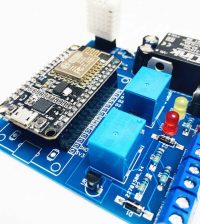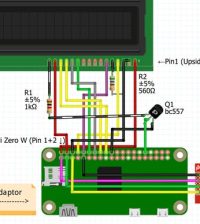- makeITcircular 2024 content launched – Part of Maker Faire Rome 2024Posted 2 weeks ago
- Application For Maker Faire Rome 2024: Deadline June 20thPosted 2 months ago
- Building a 3D Digital Clock with ArduinoPosted 7 months ago
- Creating a controller for Minecraft with realistic body movements using ArduinoPosted 7 months ago
- Snowflake with ArduinoPosted 8 months ago
- Holographic Christmas TreePosted 8 months ago
- Segstick: Build Your Own Self-Balancing Vehicle in Just 2 Days with ArduinoPosted 8 months ago
- ZSWatch: An Open-Source Smartwatch Project Based on the Zephyr Operating SystemPosted 9 months ago
- What is IoT and which devices to usePosted 9 months ago
- Maker Faire Rome Unveils Thrilling “Padel Smash Future” Pavilion for Sports EnthusiastsPosted 10 months ago
Open source weekly news
An overview on most important open source news from OpenSource.com.
This week the focus was on:
- machine learning: Google, Microsoft, H2O.ai are pushing further their solution to go open
- open source medical robots: Vanderbilt university is going on working on their capsule medical robots
- open source mapping tools: a fundamental tool for news mapping and really helpful for journalism
Google released the code for its TensorFlow artificial intelligence system with the goal to guide the evolution of artificial intelligence (AI) systems. Google’s Jason Freidenfelds says the company “aims to make the software it built to develop and run its own AI systems a part of the standard toolset used by researchers.” TensorFlow open source “could be a game changer in the future of AI.” David Tuffley writes “By making TensorFlow open source, Google is playing the long-game. It’s positioning itself at the centre of a growing machine learning community.” H2O.ai, the firm behind an open source machine learning platform, announced it has raised $20 million in funding. The money, says H20.ai’s Sri Ambati, “will support the explosive growth in our customer community and the application developer ecosystem in key verticals”. Microsoft released an open source machine learning toolkit. Called the Distributed Machine Learning Toolkit (DMLT), this offering “simplifies machine learning work across distributed systems by allowing models to be trained (a core component of machine learning) on multiple nodes at once.” This will enable data scientists to get better results quickly and efficiently.
Vanderbilt University in the United States is a leader in medical robotics, and one area the University focuses on in medical capsule robotics, which help makes certain types of internal surgery easier. This week, the University announced it is making the hardware and software for it capsule robots open source. To explain the move to open source, Pietro Valdastri of the Science and Technology of Robotics in Medicine lab says “We’ve done custom capsule design, but we saw we were basically reusing the same components.”
The online news outlet Quartz will be open sourcing a pair of mapping tools. The tools are a database of global map information called Mapquery, and a visualization tool called Mapbuilder. They create “a system for finding, merging and refining geographic data.” According to Journalism.co.uk, “Quartz aims to have a prototype of Mapquery by April, and will continue to develop Mapbuilder afterwards.”
Source: Open source news: November 7 — 14, 2015 | Opensource.com
















